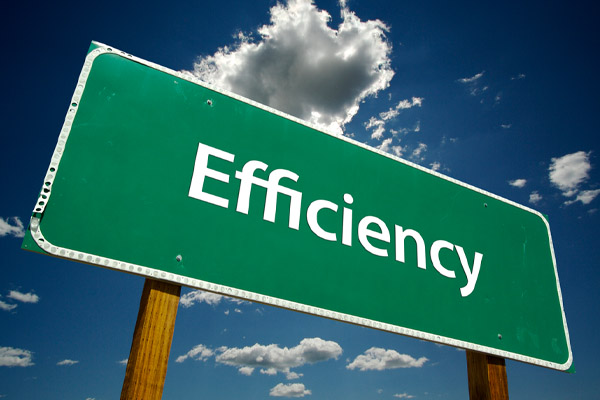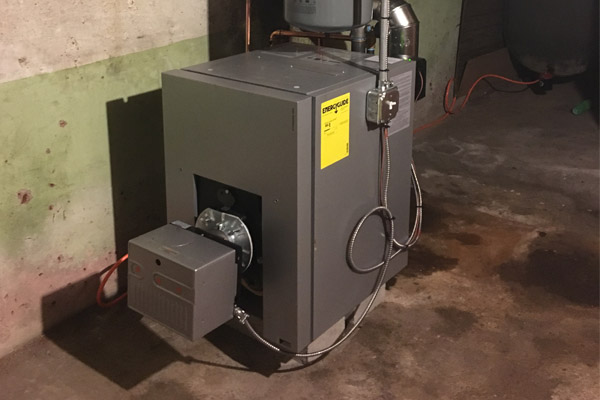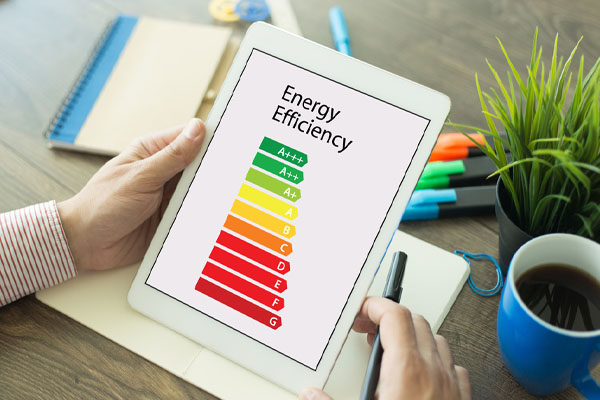What Is AFUE, And Why Does It Matter For Your Heating?

Annual Fuel Utilization Efficiency (AFUE) is an essential metric for evaluating the efficiency of heating systems in transforming fuel into usable heat throughout the year. For homeowners considering new heating options, grasping the significance of AFUE rating is pivotal. These ratings affect your household’s energy usage and influence ongoing heating costs.
At Hart Home Comfort, we prioritize your understanding of how energy efficiency impacts both your wallet and the environment. This article delves into the nuances of AFUE ratings, shedding light on their role in energy consumption, cost management, and environmental stewardship. With this knowledge, you’ll be equipped to make savvy choices that align with your home’s heating needs and your commitment to sustainability.
Understanding the Implications of AFUE Ratings
Table of Contents
- 1 Understanding the Implications of AFUE Ratings
- 2 How AFUE Ratings Affect Your Energy Consumption
- 3 Selecting the Optimal AFUE Rating for Efficient Home Heating
- 4 Financial Implications of High-Efficiency Heating Systems
- 5 Regulatory & Environmental Impact of AFUE Ratings
- 6 Enhancing and Sustaining Your Home Heating System
- 7 Heating Efficiency FAQs
- 8 Conclusion
- 9 Reach Out to Hart Home Comfort for Exceptional HVAC Services
In the upcoming segments, we will examine the effects of AFUE ratings on energy usage and related expenses, guiding you in making optimal decisions for your heating system.
Decoding Efficiency Ratings for Heating Systems

AFUE, short for Annual Fuel Utilization Efficiency, quantifies the portion of fuel converted into heat over a heating season. For instance, a system with an AFUE rating of 85% successfully converts 85% of its fuel to heat, with the remaining 15% escaping unused. This measure is vital for heating systems, distinguishing them from other HVAC systems that rely on different metrics like SEER (Seasonal Energy Efficiency Ratio) for air conditioners and HSPF (Heating Seasonal Performance Factor) for heat pumps, which evaluate efficiency differently.
AFUE ratings are set through standardized testing protocols defined by the Department of Energy. These tests mimic actual usage conditions to ascertain the ratio of heat output to energy input. Such uniform assessments aid consumers in selecting efficient heating systems, enhancing energy management, and reducing costs.
Discover Dependable Heating Solutions! Contact Hart Home Comfort today for reliable service you can count on. Don’t wait—call us now for exceptional support!
How AFUE Ratings Affect Your Energy Consumption
Recognizing how AFUE ratings vary can drastically impact a homeowner’s energy use and potential savings.
Benefits of High-Efficiency Heating Ratings
Systems with AFUE ratings of 90% or higher provide substantial advantages. These include reduced energy costs and enhanced comfort. High-efficiency furnaces employ cutting-edge technologies like condensing systems and modulating flames to achieve these benefits.
For instance, condensing furnaces improve overall efficiency by capturing and reusing exhaust heat while modulating flames to fine-tune burner output to meet heating needs precisely, ensuring peak performance. These technological advancements result in decreased fuel usage and reduced emissions, positioning them as eco-friendly heating options.
Drawbacks of Low AFUE Ratings

Heating systems sporting 56% and 70% AFUE ratings come with notable disadvantages. These older models often waste a significant portion of fuel, escalating energy costs.
Homeowners may experience higher heating bills and decreased comfort due to these units’ inability to maintain steady temperatures. Furthermore, the inefficiency of these systems typically results in more frequent needs for repairs and replacements, thus driving up long-term expenses. Opting for a high-efficiency system can alleviate these issues and save energy.
Need Top-Notch Heating Services? Contact Hart Home Comfort now to guarantee your home stays warm and cozy throughout winter. Call us today!
Selecting the Optimal AFUE Rating for Efficient Home Heating
Identifying the proper AFUE rating is essential for enhancing heating efficiency and ensuring energy use is effective and economical in your home.
Considerations for Choosing the Ideal HVAC Heating Rating

When deciding on the most suitable AFUE rating for your home, it’s important to evaluate several key factors:
- Size of the Home: Larger spaces generally require systems with higher AFUE ratings to provide sufficient heating.
- Local Climate: Higher efficiency ratings are crucial for maintaining a comfortable indoor environment in colder regions.
- Insulation Quality: Homes with robust insulation may not need as high an AFUE rating as less heat is lost.
- Personal Comfort Preferences: Your own comfort needs can significantly impact the efficiency rating that best suits your lifestyle.
Seeking Expert Heating Guidance? Contact Hart Home Comfort for professional advice and premier heating installation services. Get in touch with us today!
Financial Implications of High-Efficiency Heating Systems
Investing in heating systems with high AFUE ratings offers significant energy cost reductions. Such systems operate more efficiently, using less fuel and consequently lowering monthly energy bills.
Although the initial purchase price of these systems is typically higher, the savings realized over their operational lifespan often more than compensate for the initial expense. Homeowners find that they can recover the upfront cost through ongoing reductions in their energy expenses, rendering these systems a financially beneficial choice for immediate comfort and long-term savings.
Regulatory & Environmental Impact of AFUE Ratings

Federal and state mandates dictate minimum AFUE ratings to enhance energy efficiency and curtail emissions from heating systems. For instance, the Department of Energy requires gas furnaces to have at least an 80% AFUE rating and oil furnaces to achieve a minimum of 82%. These regulations are made to reduce energy usage and support the Environmental Protection Agency’s initiatives to mitigate climate change and improve air quality.
Using heating systems with AFUE ratings of 90% or higher provides substantial environmental advantages, including reduced greenhouse gas emissions and dependence on fossil fuels.
Homeowners are urged to reflect on the extensive effects of their heating decisions on energy preservation and environmental well-being. Homeowners save money by opting for efficient systems. These systems also play a crucial role in fostering a more sustainable future.
Explore Cost-Effective Heating Solutions! Call Hart Home Comfort today to discuss efficient and affordable heating options. Don’t wait—reach out now!
Enhancing and Sustaining Your Home Heating System
Consider upgrading to a higher AFUE-rated heating system if your current unit often needs repairs, fails to keep a steady temperature, or is approaching or beyond its typical lifespan—usually 15 to 20 years for most models. Systems with higher AFUE ratings heat more efficiently and generally feature lower energy costs and a longer service life thanks to reduced wear and tear and more sophisticated technology.
Regular maintenance is essential to keeping your heating system’s AFUE rating and overall efficiency intact. An annual professional check-up is crucial to sustain its performance and prolong its operational lifespan.
Critical maintenance tasks such as cleaning or replacing filters, verifying thermostat settings, and inspecting exhaust outlets ensure your system operates optimally. These actions help avoid typical declines in performance over time, ensuring your system delivers maximum energy savings and environmental advantages.
Heating Efficiency FAQs

How Do AFUE and Energy Star Ratings Differ?
AFUE ratings quantify the efficiency of a heating system in converting fuel into heat over a standard year, presented as a percentage. On the other hand, Energy Star ratings signify a certification granted by the Environmental Protection Agency (EPA) to products that adhere to stringent energy efficiency criteria across multiple categories, such as appliances and heating systems.
Do AFUE Ratings Change As Time Passes?
Yes, the AFUE ratings of a heating system can decrease over time because of factors like wear and tear and the buildup of dust and dirt. Regular maintenance by a professional is critical to help the system maintain its efficiency as close to the original level as possible for as long as feasible.
Are There Financial Incentives for Installing High AFUE-Rated Systems?
Yes, numerous local and federal initiatives provide rebates, tax credits, and other financial incentives for the installation of high-efficiency heating systems that achieve or surpass specific AFUE ratings. These incentives are designed to encourage energy conservation by motivating homeowners to opt for more efficient heating solutions.
Secure Your Comfort with Hart Home Comfort! Reach out today for expert heating services that ensure your complete satisfaction. Contact us now!
How Can I Check the AFUE Rating of My Heating System?
The AFUE rating of a heating system is typically noted on the energy guide label or the manufacturer’s faceplate attached to the unit. If these are not easily accessible, an HVAC professional can assess your system and provide the current efficiency rating.
Will a Higher AFUE Rating Necessarily Reduce My Heating Expenses?
Although a higher AFUE rating reflects enhanced efficiency in fuel-to-heat conversion, the actual effect on your heating bills may differ due to several variables. These include the climate in your area, prevailing fuel costs, your home’s size and insulation level, and your regular heating practices. While systems with high AFUE ratings are expected to lower energy expenditures, the actual savings also hinge on these surrounding factors.
Conclusion
Grasping the significance of AFUE ratings is crucial for selecting a heating system that meets your energy efficiency and budgetary needs. Consulting with Hart Home Comfort offers personalized guidance to help you choose the most suitable options for your home. Whether you want to upgrade your heating system or require routine maintenance to enhance its efficiency, reach out to Hart Home Comfort today. Our team of experts is prepared to help you optimize comfort and savings in your home.
Looking for Premium Heating Services? Contact Hart Home Comfort today for top-quality heating solutions and outstanding customer service. Don’t hesitate—call us now!
Reach Out to Hart Home Comfort for Exceptional HVAC Services
Hart Home Comfort provides superior heating and cooling solutions across Nassau County, Suffolk County, and Queens, New York. Our team comprises extensively trained and professionally certified technicians skilled in HVAC tune-ups, repairs, installations, and replacements. Their profound knowledge ensures precise and thorough servicing of your HVAC system.
We take pride in offering the region’s most cost-effective heating and cooling services. Choosing our maintenance services can improve your comfort and increase energy efficiency, reducing the costs of heating and cooling your home. Whether you need an HVAC repair or a new system installation, we are ready to help you find the ideal solution that aligns with your financial plans.
We back our services with a satisfaction guarantee. For a complimentary in-home consultation or to schedule a service appointment, contact Hart Home Comfort today. Don’t wait—call now!
For any questions about what Hart Home Comfort can do for you, give us a call today. Click here to contact us now or call us at (631) 667-3200 to find out more! Click the link to view our service area.

Related Articles:
- Boost Your Heating System’s Performance with Regular Oil Filter Replacements
- Carbon Monoxide Safety Measures For Homeowners This Heating Season
- Smooth Conversion: Integrating Bioheat® Fuel into Existing Heating Oil Systems
- How Does An Oil Heating System Work?
- What Happens When You Skip Furnace Tune-Ups?
- New Efficient Oil Heating Systems Increase Comfort And Decrease Fuel Use
